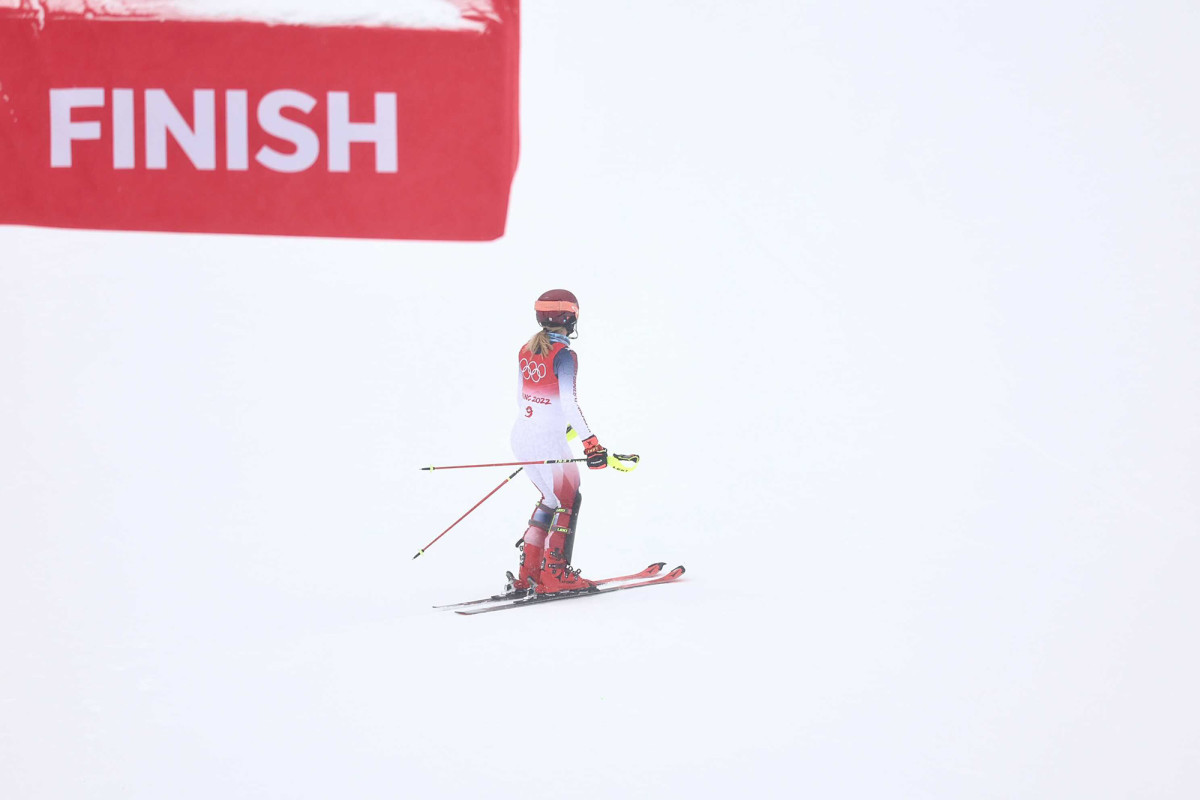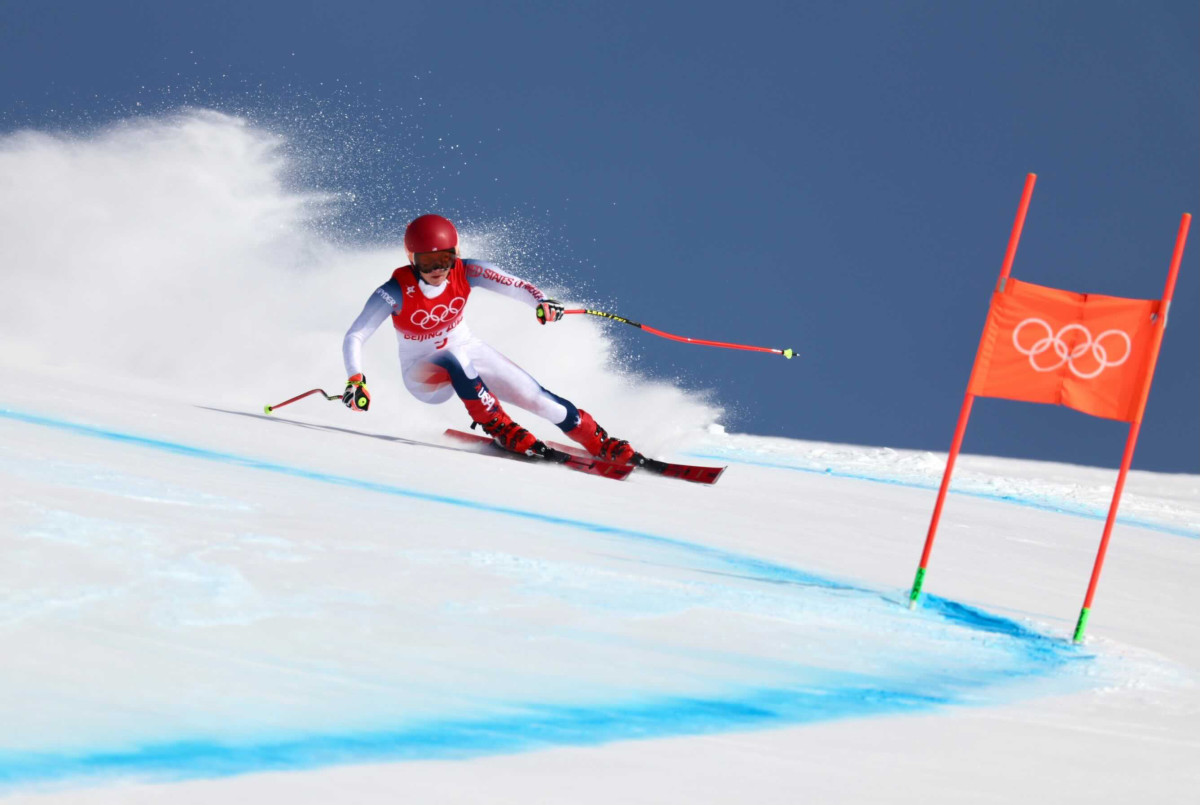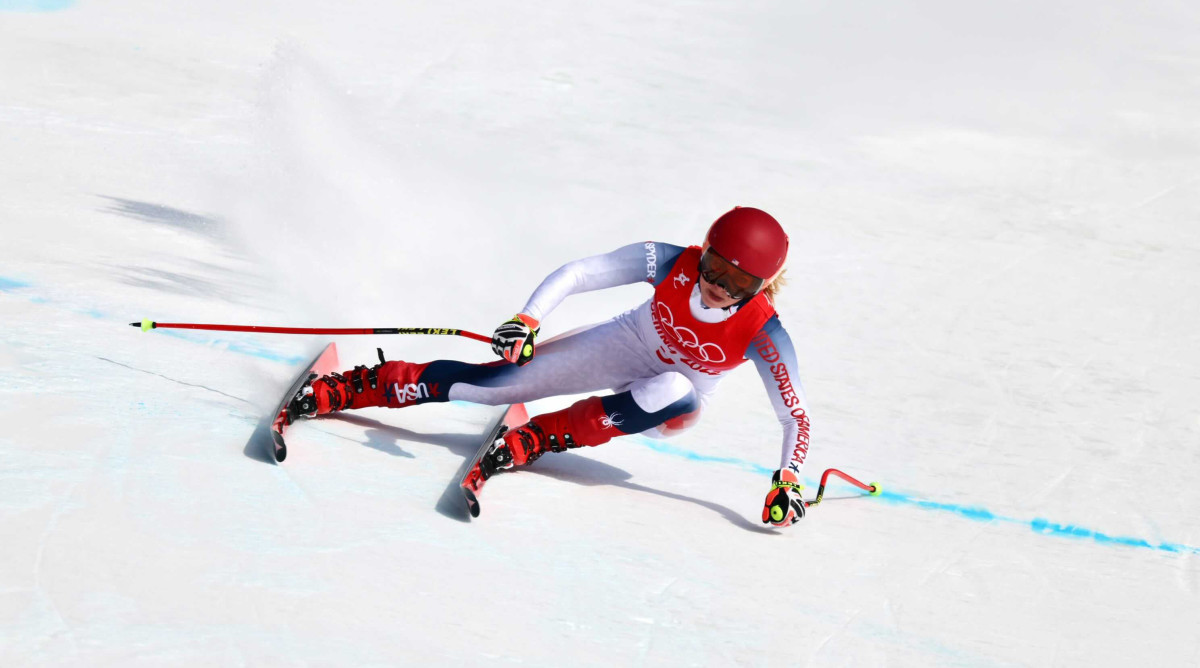Mikaela Shiffrin Can’t Explain the Reason For ‘Fantastically Failed’ Olympics
BEIJING — American skier Isabella Wright said, “We’ve all been there,” but the truth is that nobody ever has. There has never been a Winter Olympics performance quite like Mikaela Shiffrin’s. She is the best slalom skier in the world and she can’t finish a slalom.
Her last individual race of the Olympics came and went Thursday, and it was like most of the rest: She came and went off the course. She was in fifth place after the downhill portion of the combined, behind four skiers who are not nearly as accomplished at the slalom as she is. Shiffrin was in prime position to win gold. What happened next was both unbelievable and entirely predictable: She lost control after the 10th gate and didn’t make it to the 12th.
When she finally made her way down toward the finish, Shiffrin stopped to check on Italian Nicol Delago, presumably to make sure she was O.K. but possibly to ask her what the bottom of the course looked like. Delago had also skied out on the slalom in the combined event, but made it closer to the finish line than Shiffrin did in three Olympic events.
Slalom: DNF. Giant slalom: DNF. Combined: DNF.
Do you see a connection here?

“Right now, I don't,” Shiffrin said. “That's even more frustrating, because I think you want to—not you, but just in general, people—want to be able to say, like, ‘it's a pressure thing.’ I mean, there are certainly points during the Games where I felt the weight of pressure and expectations. But in general, when I was racing, it wasn't the case. That wasn't something outrageous, and it certainly wasn't more than I ever experienced in my career before …
“The pressure is there. It's always there, and I don't feel uncomfortable or even unfamiliar with it. Some days, I'm a little bit more tight, and it's still possible to ski well and some days I'm a little looser, and it's still possible to ski well. And today, I felt that I had a pretty calm, solid mentality. Nothing too crazy.”
The seemingly obvious cause of her disappointing Olympics—a psychological block—is not obvious to Shiffrin. Maybe that is the psychological block. Maybe she is so convinced this is a series of physical mistakes that she can’t even begin to address the real problem.
Whatever is happening, this is hard to watch, and it only gets harder when Shiffrin talks about it. Think of how many athletes in this situation would blow off the media or bristle at questions. Shiffrin is kind, patient and thoughtful, and she has not come close to being resentful, at least toward us.
She giggles. She pokes fun at herself. She talks about how much she cares, and she cops to self-doubt.
“I'm certainly questioning a lot,” Shiffrin said. “I'm really disappointed and I'm really frustrated. I also know that there's going to be a whole chaotic mess of crap that people are saying, about how I just fantastically failed these last couple of weeks in the moments that actually counted. And it's really strange but I'm not even afraid of that right now. And maybe that's because I literally have zero emotional energy to give anymore . . .
“The most disappointing thing is that I had multiple opportunities to ski slalom on this track. And I. . .well . . . you know, failed in all of them.”

How strange have these two weeks been for Shiffrin? Well, she can’t even explain why she believes in herself anymore. Mikaela Shiffrin! For the combined, she borrowed Italian Sofia Goggia’s downhill skis and skied really well. Then came the slalom, Shiffrin’s specialty. She claims she felt great.
“Anytime I've ever been so sure about something like that in my entire career . . . um . . .”
Yes?
“Well, it's gone pretty well . . .
“I mean, the track record is . . ."
She could have been matter-of-fact about how dominant she has been, and nobody would have thought she was bragging, but after the last two weeks, even talking about her success at all felt weird. She finally said: “At least what I can say is, with that kind of feeling on my skis, I never DNF. And now I had a pretty good feeling on my skis two races in a row on the same slope, and I DNF’ed twice.”
At one point she laughed and said, “I don't think I'm gonna DNF for the rest of my career, every single slalom, if I'm gonna have a good mentality. If I do, I'm not gonna keep doing this for that long.”
It seems like this can’t get more awkward. But it will. The mixed team event is Saturday. Shiffrin said she will participate “because I'm that much of an idiot.” She had already joked, “I should probably just quit.” She shouldn’t quit, and she’s not an idiot . . . but if she can’t finish a slalom by herself, can she really do it when there are medals on the line for her teammates? A DNF on its own will not cost the Americans a medal, but she is setting herself up for another—let’s use her word here—failure.

“The one thing I didn't want to do was ski safe,” she said Thursday. “I just wanted to ski a good solid run of slalom. It was not actually that much to ask from myself, and I was starting to do it, and then I was out anyway. So it's very . . . well, I don't really understand it. And I'm not sure when I'm going to have much of an explanation and I can't explain to you how frustrated I am to not know what I can learn from the day.”
Mikaela Shiffrin has had a miserable Olympics, but what is so endearing about her is how she talks about it. She runs from nothing.
“There’s the question, like: Can I actually make it down the course?” she said. “I can. I mean, I could go do it right now.”
Absolutely, she could. But that might have been because the medal ceremony had already taken place.
More Olympics Coverage:
• It's Time to Raise the Age Minimum in Figure Skating
• Regardless of His Results in Beijing, Gus Kenworthy’s Legacy Is Already Set
• 'Nobody Likes Being Cold': Winter Olympians Who Hate the Winter
• Aerial Skiers Must Overcome Surprising Fear of Heights to Win Big
